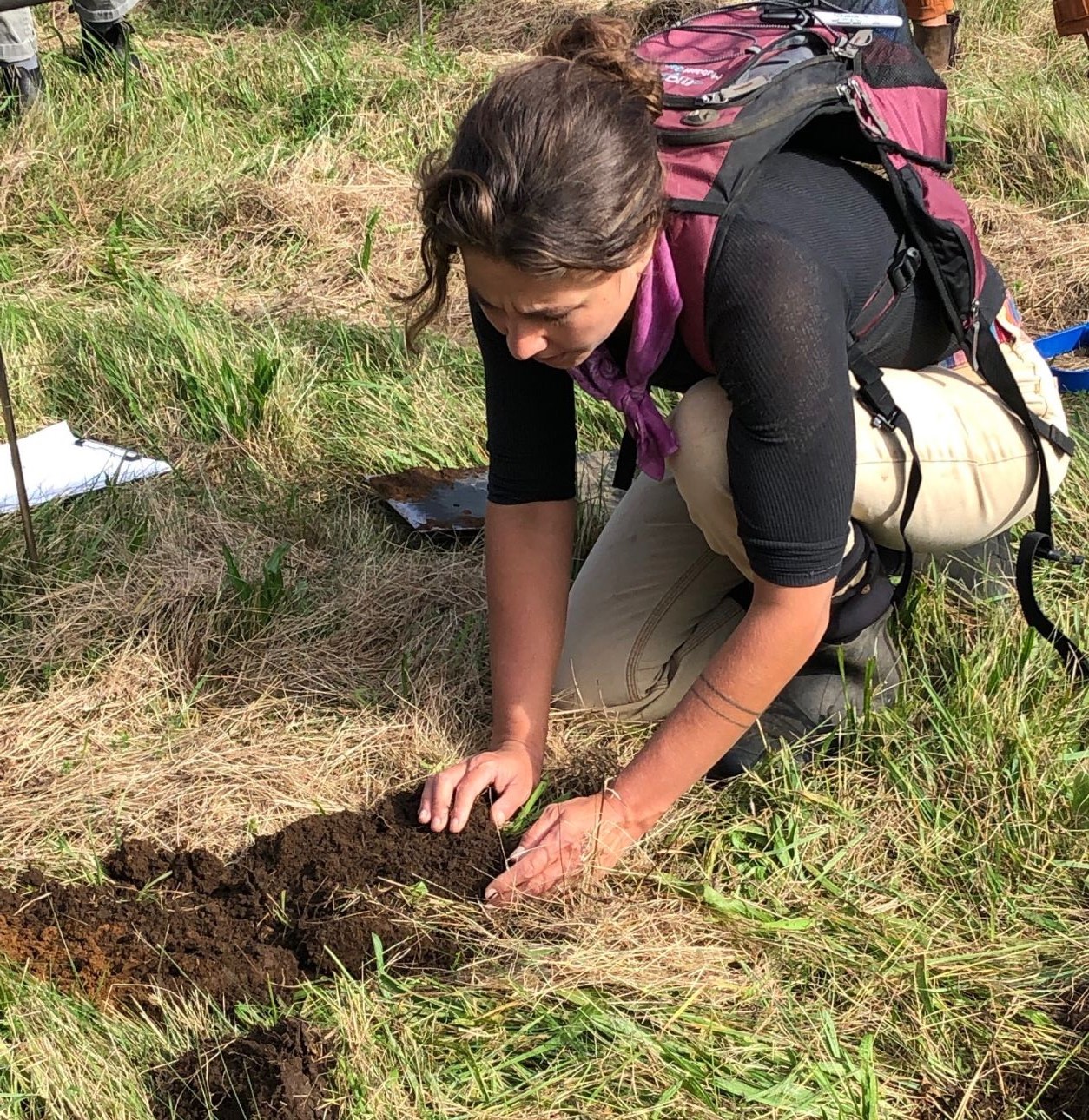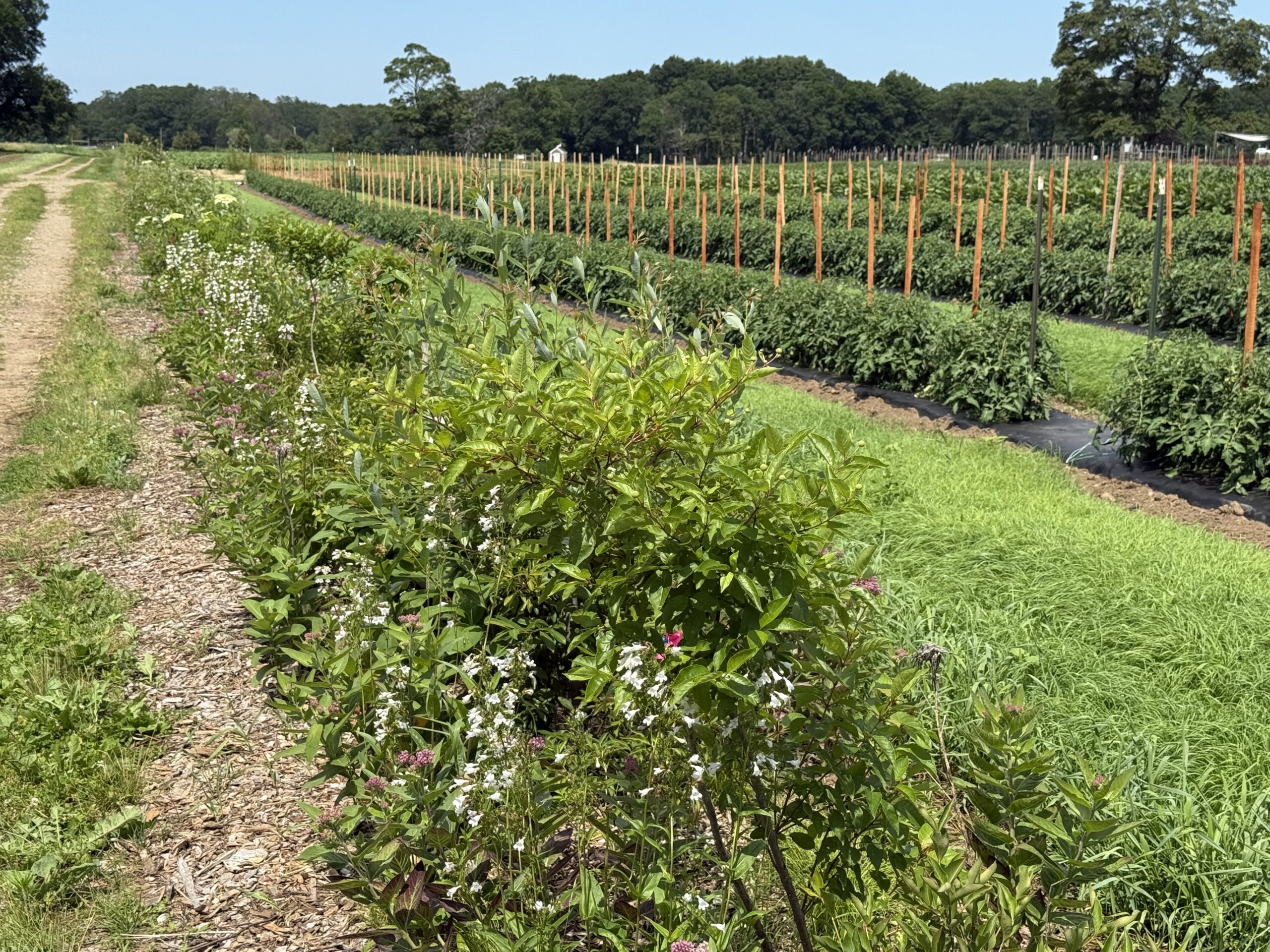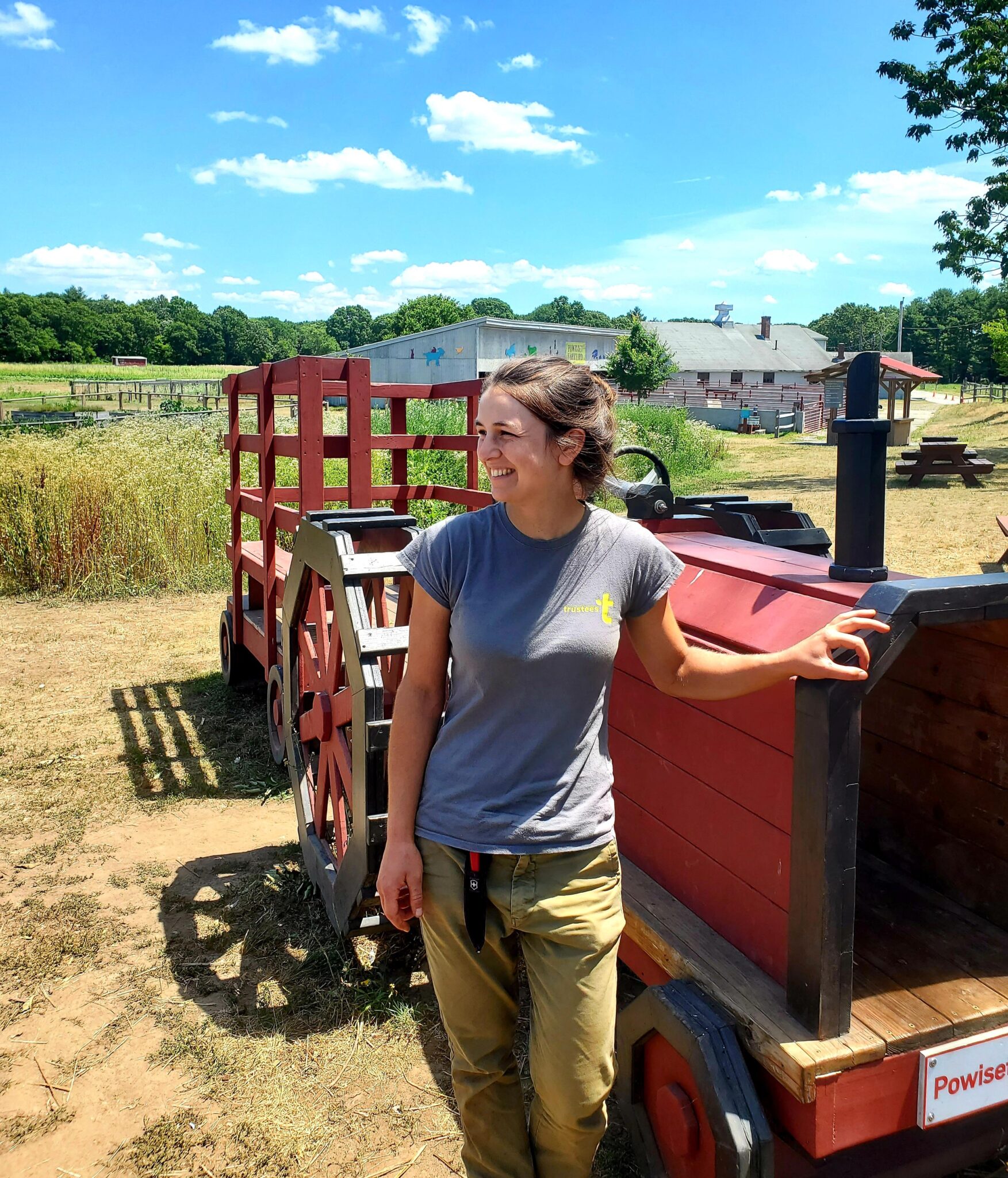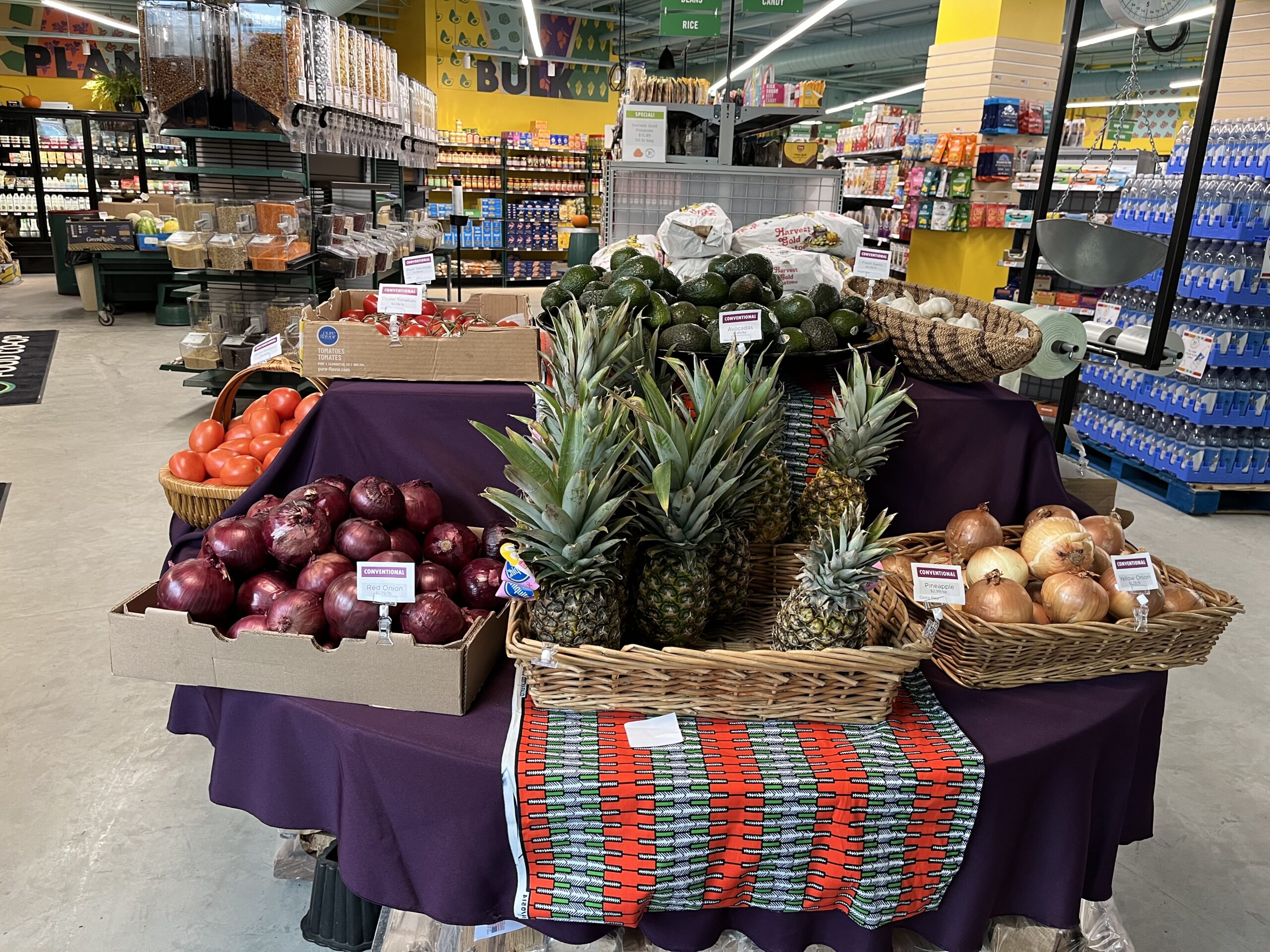
Soil is the basis of all land-based ecosystems. Healthy soil is full of biodiversity, supports food production, improves water quality, sequesters carbon, enhances resilience, and has the potential to mitigate climate change. It’s not just dirt. The choices we make as growers and farmers to support soil health are important ones.
Over the past year, The Trustees Agriculture Team completed a comprehensive statewide farm soil assessment to establish data we can use to track soil health and how it changes over time. This assessment included digging 315 holes and gathering 75 total samples across our production farms and satellite fields!
As a part of the data collection process, we also conducted in-field assessments and noted observations such as color, root depth, evidence of beneficial organisms (earthworms, pores), surface and subsurface compaction, weed pressure, and more. In one instance, the team compared the visible structure of relatively depleted field crop soils with soils that have been in permanent pasture for decades, and the distinction was remarkable. Well-managed permanent pasture can have a healing effect on depleted soils, which is another advantage of integrating livestock with field crop production. The physical distinction in these two areas further demonstrated the fact that our choices as farmers are evidenced in the soil.
The takeaways from our findings are very encouraging. As caretakers of protected farmland producing food now and in perpetuity, we can be proud of our farmers for employing practices that support soil health. Our soils are rich in organic matter and soil carbon sequestration levels are high, particularly in our managed grazing and hay fields. On balance, indicators tell us we are presently farming sustainably, but we want to do better. We have already explored further tillage reduction options, long-term rotation between field crop production and permanent pasture, improved manure composting capacity, drill seeding warm season grasses and legumes, and establishing new perennial crops.
Continued soil health research and observations are an invaluable and essential part of the work we’re doing at our farms. As Wendell Berry said, “The soil is the great connector of lives, the source and destination of all. It is the healer and restorer and resurrector, by which disease passes into health, age into youth, death into life. Without proper care for it we can have no community, because without proper care for it we can have no life.”



